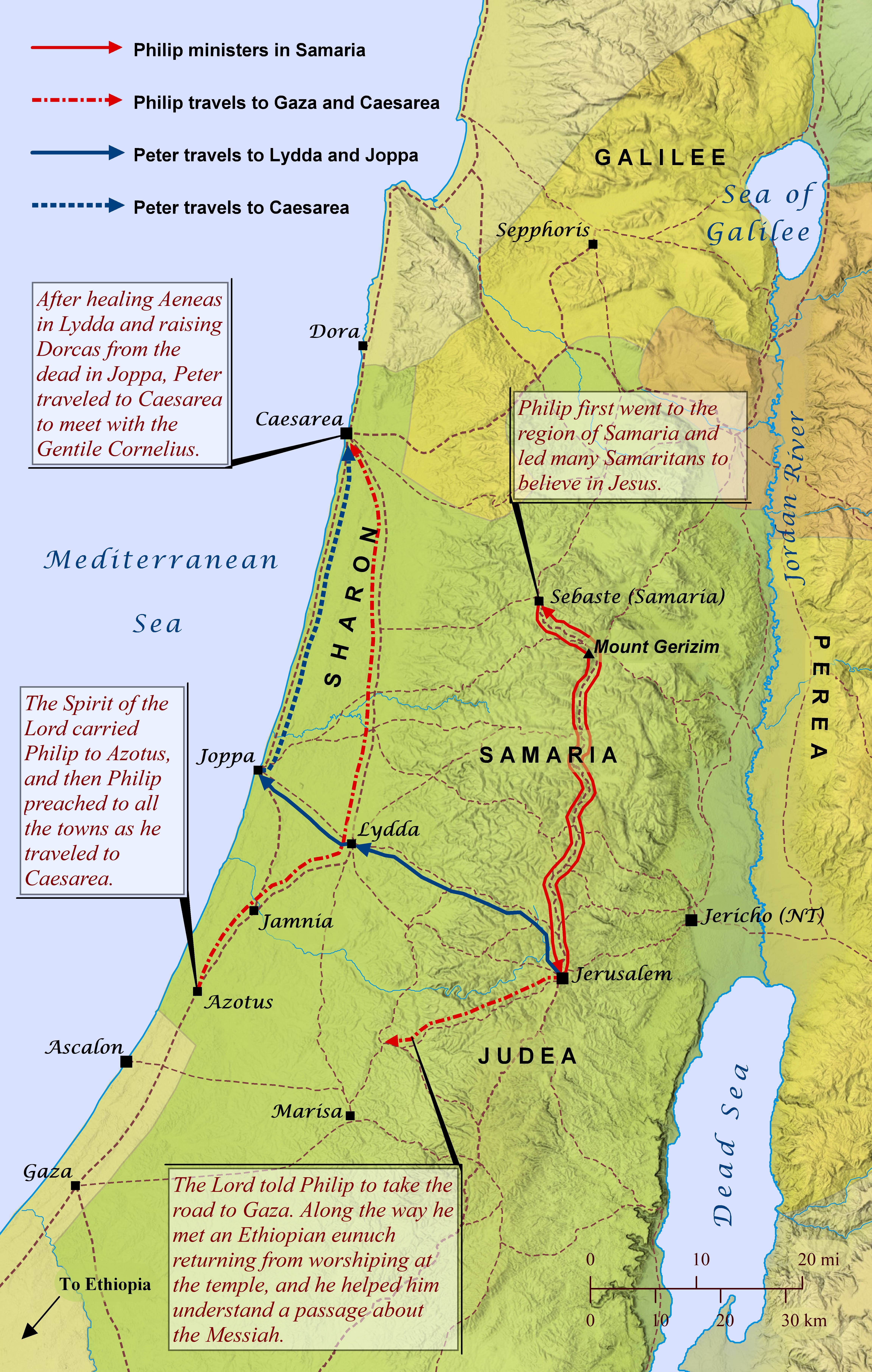
As Dr. Joseph mentioned in his introduction to this Lesson, the Book of Acts is not only the second volume to the Gospel of Luke. It shares several key themes with Luke. Many scholars actually refer to the two together as Luke-Acts. This seamless transition links the life and teachings of Jesus Christ to the inception and spread of the church. You might even say that the book of Acts is the continued acts of Jesus through the Holy Spirit.
1. The Work of the Holy Spirit
In the Book of Acts, the Holy Spirit’s activity is obvious, guiding and empowering the apostles and the early church in their missionary endeavors. This work of the Spirit continues from Luke, where the Holy Spirit empowers Jesus’ ministry. In Acts, the Holy Spirit descends upon the apostles at Pentecost, signaling the birth of the Church and the commencement of its global mission (Acts 2). The Spirit’s empowering presence equips believers to bear witness to the Gospel, transcending linguistic and cultural barriers.
2. A Gospel for the Whole World
Acts 1:8 serves as a kind of blueprint for the mission of Acts.
You will receive power when the Holy Spirit comes on you; and you will be my witnesses in Jerusalem, and in all Judea and Samaria, and to the ends of the earth.
John 3:16
We can see this ever-expanding mission as the gospel moves first in Jerusalem (Acts 1-7). Then it expands to Judea and Samaria (Acts 8-12). Then with Paul’s missions, the good news expands all the way to Rome (Acts 13-28), the ends of the earth given the scope of their world.
 Source:BibleMapper.com
Source:BibleMapper.com 3. Prayer
The theme of prayer permeates both Luke and Acts. In Luke, Jesus often retreats to pray (Luke 5:16), and he teaches his disciples to do the same. In Acts, prayer undergirds the believers’ activities, symbolizing their dependence on God. It is during a time of prayer that the Holy Spirit descends at Pentecost (Acts 1:14, 2:1-4), and prayer prefaces pivotal moments such as the choosing of the seven (Acts 6:6) and Peter’s miraculous escape from prison (Acts 12:5).
4. Salvation for All People
One of the resounding themes in both Luke and Acts is the fact that salvation is for everyone. Luke frequently emphasizes Jesus’ compassion for those on the margins of society, including Gentiles, tax collectors, and sinners. Acts continues this theme by showing first the expansion of the good news to Jews who did not speak Aramaic (Acts 6:1-7) to individuals who possibly were inherently unclean (Acts 8:26-40) to non-Jews (Acts 10). The Gospel is proclaimed to all nations, transcending ethnic, social, and geographical boundaries, and embodying God's impartial generosity.
5. Women and Those on the Edges
The role that women played in earliest Christianity is strikingly highlighted in both Luke and Acts. In Luke, several women are central characters, such as Mary, Elizabeth, and the women who support Jesus’ ministry (Luke 8:1-3). In Acts, women like Lydia, Priscilla, and the daughters of Philip play crucial roles in the burgeoning Christian community, underscoring the inclusive nature of the early Church. Whether it be the poor, the outcasts, the ignored or unwanted, Acts continues the theme of Luke that the good news is for all the “lost sheep” of the world.
6. The Peaceful Unity of the Church
Christians did not necessarily have a good reputation in the Roman Empire. After all, Jesus was crucified as a revolutionary a self-proclaimed “King of the Jews.” Paul was constantly being hauled before Roman officials and riots around him were not uncommon. It is perhaps no surprise that the emperor Nero tried to use Christians as a scapegoat for the fire in Rome around AD64. Against this backdrop, Acts highlights the unity of the earliest church (e.g., Acts 2:42-47). Acts also leaves the clear impression that the trouble that sometimes followed them came from their enemies rather than from them (e.g., Acts 19:23-41).
The Book of Acts thus not only continues the story started in the Gospel of Luke but also echoes its major themes. The Holy Spirit’s work, the expansion of the Gospel to the whole world beyond all boundaries, the significance of prayer, the role of women and those on the margins, and the peaceful unity of the church are all themes that weave their way through Luke and Acts. We see that the church continues the ministry of Jesus in his followers, now filled with the Holy Spirit.